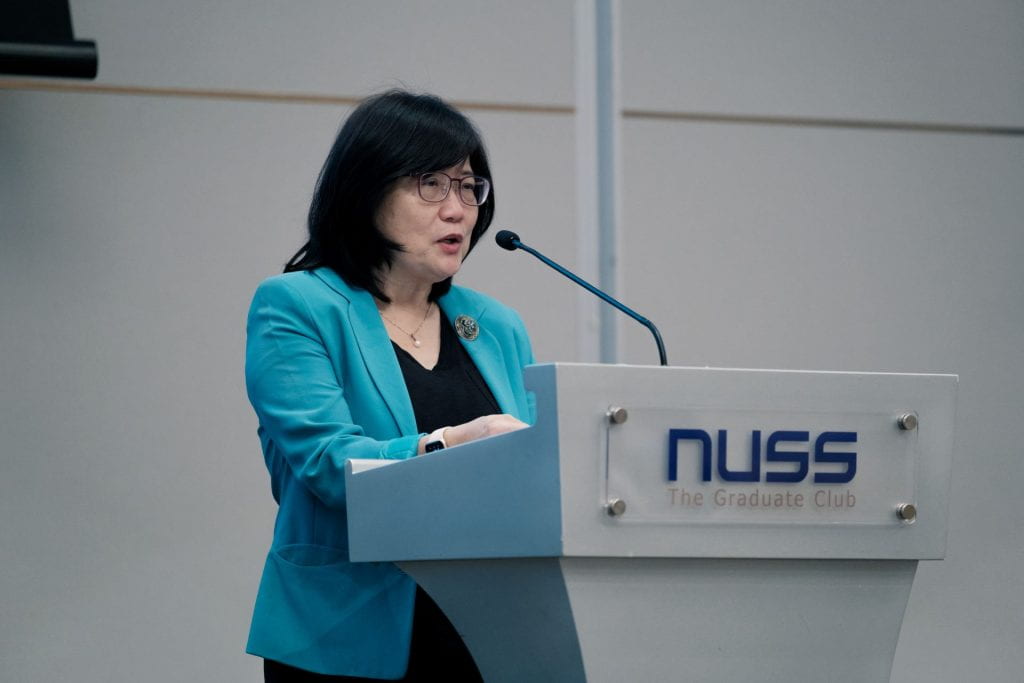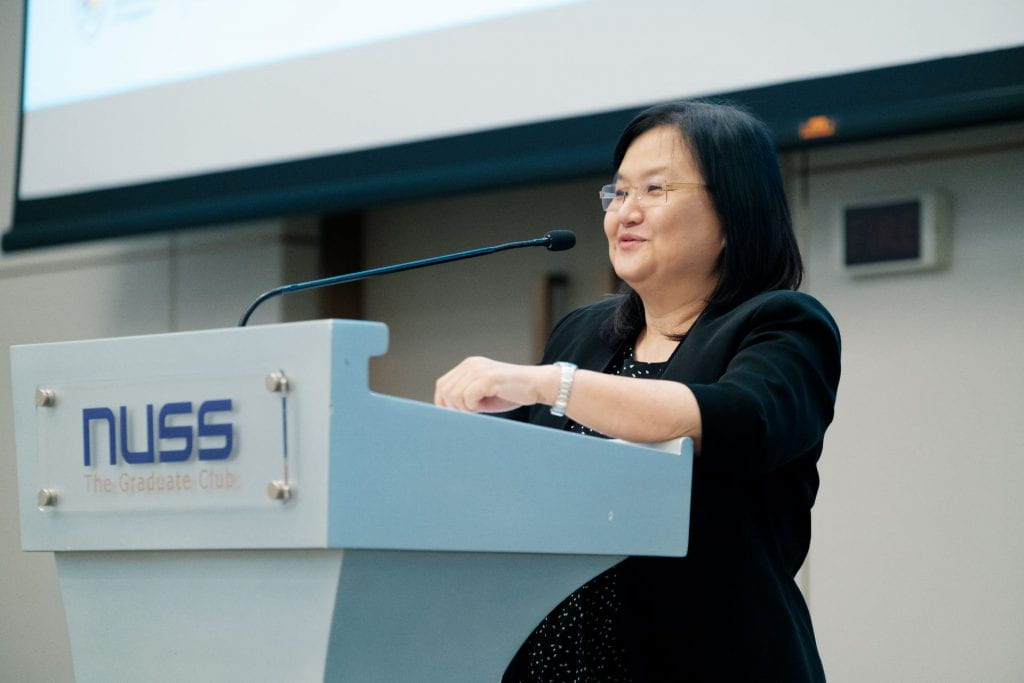In Singapore, an innovative project is training frontline staff and volunteers to give financial guidance to low-income families.
In June, the National University of Singapore (NUS) announced the launch of the Frontline Training Project as part of the Next Age Institute’s Singapore Financial Capability and Asset Building (SG FCAB) initiative. The project will develop and pilot a curriculum for training on basic financial guidance.
Through the new curriculum, “Frontline staff and volunteers will be equipped with the knowledge and skills to continue supporting low-income individuals and families to enhance their financial capabilities and asset building efforts,” said Chia Ngee Choon. Chia is associate professor of economics at NUS and co-director of the Next Age Institute, an ongoing special partnership for innovation between Washington University in St. Louis and NUS.

With separate research arms and independent leadership at the two universities, the Next Age Institute fosters cutting-edge applied scholarship with purposeful, multidisciplinary cooperation. At Washington University, the institute is part of the McDonnell International Scholars Academy.
The new project grew from the Next Age Institute’s 2017 launch of SG FCAB, which initially focused on training for social workers and social work students. That earlier effort drew upon the work of Margaret Sherraden, Jin Huang, Lissa Johnson, Gena Gunn McClendon, and other experts in the Center for Social Development at Washington University’s Brown School.
The FCAB initiative was created by the Center for Social Development for educators in the United States. The Next Age Institute at NUS adapted the financial capability curriculum to fit the Singaporean context and extended the training to social workers in practice. The SG FCAB at Next Age Institute at NUS and the Center for Social Development’s work on financial capability and asset building set the stage for the center’s similar training initiatives in mainland China, Africa, and elsewhere.
Since 2017, more than 150 social work students and over 250 social workers have received the training through SG FCAB, which has plans to train an additional 200 social workers by June 2023. Through the continuing education offerings of NUS’s Department of Social Work, the training is available to social workers throughout Singapore.
In the new project, the shift from training social workers and social work students to training frontline staff and volunteers represents a significant expansion for SG FCAB.
“This is a meaningful advance,” said Michael Sherraden. “In moments of financial stress and at critical decision points, informed financial guidance can change lives.” Sherraden is the George Warren Brown Distinguished University Professor at Washington University, co-director of Next Age Institute at Washington University, and director of the Center for Social Development. He has served as a Fulbright research scholar in Singapore (1992–1993), and was the inaugural S.R. Nathan Professor at NUS for 5 years (2013–2018). Nathan was Singapore’s longest serving president.
To create the Frontline Training curriculum, the Next Age Institute will conduct focus groups and draw upon insights from a committee representing ten stakeholders: Singapore’s Ministry of Social and Family Development, the Ministry of Manpower, the National Council of Social Service, MENDAKI, the Singapore Prison Service, the People’s Association, the Institute for Financial Literacy, the Singapore After-Care Association, Care Corner Singapore, Ltd., and AMKFSC Community Services, Ltd.
The institute will pilot the new curriculum with 60 frontline workers and volunteers in late 2022, finalizing it by June of 2023. In a statement, the institute said that its goal is to embed the curriculum within “ongoing field learning and training.”
Citi Foundation, the philanthropic arm of Citigroup, is funding the development and implementation of the new Frontline curriculum, as well as the expansion of the SG FCAB training to more social workers, with a grant of $330,000 (U.S. dollars). The sum adds to the $630,000 that the foundation already awarded from 2017 to 2021 for the SG FCAB initiative.
“As household finances become increasingly complicated, everyone will need guidance from time to time,” said Margaret Sherraden. “Singapore’s expanded training initiative will bring reliable financial guidance to families who otherwise may not receive it. This is an important advance.” Sherraden is research professor in Washington University’s Brown School and faculty director of financial capability and asset building in the Center for Social Development.
Grace Xu, a social worker who has already completed the SG FCAB training, shared its influence on her work. “I gained confidence and competency in navigating resources, shared benefits, and opportunities to enhance clients’ employability,” said Xu, head of the social work team at AWWA Transitional Shelter.
At the June 17 event, Corinne Ghoh, the Frontline Training Project’s Lead, shared her perspective on the project’s potential. “When low-income individuals and families experience support in making informed decisions about their finances, they are empowered to assume greater control over their lives and move towards positive changes,” said Ghoh, who holds appointments as an adjunct associate professor of practice at NUS and faculty director in the Center for Social Development, as well as at Singapore’s Ministry of Health.

Additional information about the Center for Social Development’s work on financial capability and asset building can be found on the center’s website. More about the Washington University arm of the Next Age Institute can be found on the institute’s website.
